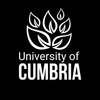
Overview
Established in 2007, the University of Cumbria is a non-profit public higher education institution located in the small city of Carlisle (population range of 50,000-249,999 inhabitants), North West England. This institution also has branch campuses in London, Lancaster, Ambleside and Workington. Officially recognized/chartered by the Privy Council, University of Cumbria is a small-sized (uniRank enrollment range: 5,000-5,999 students) coeducational UK higher education institution. University of Cumbria offers courses and programs leading to officially recognized higher education degrees such as pre-bachelor's degrees (i.e. certificates, diplomas, associate or foundation), bachelor's degrees, master's degrees and doctorate degrees in several areas of study. See the uniRank degree levels and areas of study table below for further details. This 17-year-old UK higher-education institution has a selective admission policy based on students' past academic records and grades. International applicants are eligible to apply for enrollment. University of Cumbria also provides several academic and non-academic facilities and services to students including a library, housing, financial aids and/or scholarships, as well as administrative services.
University Snapshot
Control
![]() public
public
Entity
![]() non-profit
non-profit
Size
![]() small-sized
small-sized
Selectivity
![]() not reported
not reported
University Identity
| Name | University of Cumbria |
|---|---|
| Acronym | |
| Founded | 2007 |
| Screenshot |

|
| Video Presentation |
n.a.; please submit an official University of Cumbria general video presentation. |
University Location
| Address | Fusehill Street Carlisle CA1 2HH North West England United Kingdom |
|---|---|
| Location Map and Satellite View | |
| +44 (1228) 616 234 | |
| +44 (1228) 616 235 | |
| Other locations | London, Lancaster, Ambleside and Workington |





Social Media
Introduction
Social media can be a powerful tool for Universities to communicate with current students, alumni, faculty, staff and the wider community. But how can social media be important for prospective students? Read our article about the importance of Social Media for universities and prospective students to learn more.
Social Media
uniRank publishes brief reviews, rankings and metrics of some University of Cumbria's social media channels as a starting point for comparison and an additional selection tool for potential applicants.
University of Cumbria's Facebook page
University of Cumbria's X (formerly Twitter) page
University of Cumbria's YouTube channel
University of Cumbria's Instagram page
University of Cumbria's main LinkedIn profile
n.a.